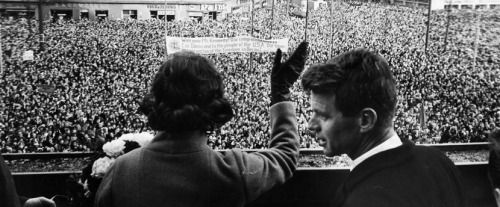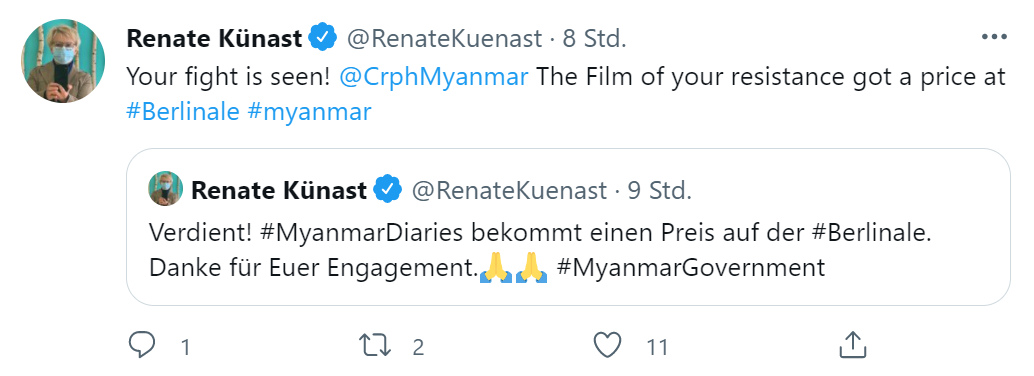-
Neueste Beiträge
Archive
- August 2025
- Juli 2025
- Juni 2025
- Mai 2025
- April 2025
- März 2025
- Februar 2025
- Januar 2025
- Dezember 2024
- November 2024
- Oktober 2024
- September 2024
- August 2024
- Juli 2024
- Juni 2024
- Mai 2024
- April 2024
- März 2024
- Februar 2024
- Januar 2024
- Dezember 2023
- November 2023
- Oktober 2023
- September 2023
- August 2023
- Juli 2023
- Juni 2023
- Mai 2023
- April 2023
- März 2023
- Februar 2023
- Januar 2023
- Dezember 2022
- November 2022
- Oktober 2022
- September 2022
- August 2022
- Juli 2022
- Juni 2022
- Mai 2022
- April 2022
- März 2022
- Februar 2022
- Januar 2022
- Dezember 2021
- November 2021
- Oktober 2021
- September 2021
- August 2021
- Juli 2021
- Juni 2021
- Mai 2021
- April 2021
- März 2021
- Februar 2021
- Januar 2021
- Dezember 2020
- November 2020
- Oktober 2020
- September 2020
- August 2020
- Juli 2020
- Juni 2020
- Mai 2020
- April 2020
- März 2020
- Februar 2020
- Januar 2020
- Dezember 2019
- November 2019
- Oktober 2019
- September 2019
- August 2019
- Juli 2019
- Juni 2019
- Mai 2019
- April 2019
- März 2019
- Februar 2019
- Januar 2019
- Dezember 2018
- November 2018
- Oktober 2018
- September 2018
- August 2018
- Juli 2018
- Juni 2018
- Mai 2018
- April 2018
- März 2018
- Februar 2018
- Januar 2018
- Dezember 2017
- November 2017
- Oktober 2017
- September 2017
- August 2017
- Juni 2017
- Mai 2017
- April 2017
- März 2017
- Februar 2017
- Januar 2017
- Dezember 2016
- November 2016
- Oktober 2016
- September 2016
- August 2016
- Juli 2016
- Juni 2016
- Mai 2016
- April 2016
- März 2016
- Februar 2016
- Januar 2016
- Dezember 2015
- November 2015
- Oktober 2015
- August 2015
- Juli 2015
- Juni 2015
- April 2015
- Januar 2015
- Dezember 2014
- November 2014
- Oktober 2014
- September 2014
- Juli 2014
- Juni 2014
- Mai 2014
- April 2014
‚We are defending Ukraine alone,‘ Zelenskiy says as Russia approaches Kyiv
Kommentare deaktiviert für ‚We are defending Ukraine alone,‘ Zelenskiy says as Russia approaches Kyiv
Stephen M. Walt, Foreign Policy:
As international affairs researcher Matthew Waldman noted in 2014, “strategic empathy” isn’t about agreeing with an adversary’s position. It is about understanding it so you can fashion an appropriate response. Whatever your views on NATO enlargement might be, there is overwhelming evidence that Russian leaders were alarmed by it from the start and expressed their concerns repeatedly. Moscow grew increasingly opposed as its power recovered and as NATO crept ever eastward. Given the United States’ own tendency to indulge in worst-case analysis and view minor security problems in distant lands as if they were existential dangers (not to mention its willingness to use force to try to solve such problems), you’d think the U.S. foreign-policy community would be acutely aware of great powers’ tendency to exaggerate threats and be highly sensitive about their immediate vicinity’s security environment. Try to point this out, however, and you’re likely to be denounced as a naive apologist for Putin.
I’m less puzzled—but still disturbed—by the ease with which the Blob has fallen back on all the familiar tropes in the foreign-policy establishment’s playbook of greatest hits. Read the Washington Post, the Atlantic, the Atlantic Council’s website, and yes, even Foreign Policy, in recent weeks and you’ll get a steady diet of hawkish posturing, with only occasional dissenting views on offer. Putin alone is said to be the source of the problem, neatly demonized along with dictators Adolf Hitler, Joseph Stalin, Saddam Hussein, Fidel Castro, Bashar al-Assad, every member of Iran’s political elite, Xi Jinping, and anyone else we’ve ever been seriously at odds with. Although Washington has been on good terms with any number of bellicose but mostly pro-American despots, the West insists on viewing this crisis not as a complicated clash of interests between nuclear-armed states but as a morality play between good and evil. As usual, society is told that what is at stake is not Ukraine’s geopolitical alignment but the entire direction of human history. And right on cue: Here comes the well-worn Munich analogy, as if Putin was a genocidal maniac whose real aim was to conquer all of Europe the same way Hitler tried to do. One can despise everything he stands for and much of what he has done—as I do—and still reject from this sort of simplistic alarmism.
Kommentare deaktiviert für
It seems to me that recognition of the two breakaway republics represent Putin’s current aim. That, plus negotiations that may induce the US to remove missile defense installations from EE. (This is his real sore point, and one that would be rational to meet.) …
I could not and cannot imagine that Putin would be so stupid as to invade Ukraine, bomb its cities, etc., though obviously Russia has the capability, even without any exercises on the border. The US also has the capability of attacking every country in the world without warning, so one must distinguish between capability and intent.
Since Putin is quite aware of our intelligence capabilities, he is quite aware that we will be watching and listening. I can imagine the hilarious laughter of Putin’s inner circle every time some useful idiot proclaimed that Russia would be attacking any time now and that we would do crushing sanctions if Russia did – but only if it did!
Zelensky’s steadfast refusal to implement Minsk II gives Putin a dandy excuse to say that this left him no alternative to recognition of the Donetsk and Luhansk entities. He is a judo master, whatever else one might say.
Kommentare deaktiviert für
22. Februar 1962
RFK at Rathaus Schöneberg 02-22-1962
Als Robert Kennedy, der US-amerikanische Justizminister und Bruder des Präsidenten, im Februar 1962 mit seiner Frau Ethel nach Berlin kam, äußerte er meinen Eltern gegenüber den Wunsch, vor seiner Abreise, die schon für den nächsten Vormittag angesetzt war, die Kinder zu sehen. Den Einwand, diese unterlägen der Schulpflicht, ließ er nicht gelten. Er würde selbst die Entschuldigung schreiben. Nun war ich darüber keineswegs begeistert. Diese Art Aufsehen war mir peinlich. Ich fragte mich, wie das bei der Lehrerschaft ankommen würde. Doch der vereinte Druck der elterlichen Regierung und der amerikanischen Supermacht war zu groß für meinen Widerstand. Lars und ich mussten zu »Bobbys« Verabschiedung auf den Flughafen Tempelhof kommen, wo dieser uns ein paar freundliche Worte widmete und hauptsächlich die »Entschuldigung« schrieb: Wir hätten an »sehr wichtigen« Besprechungen teilnehmen müssen, die die »Freiheit der Vereinigten Staaten und Berlins betreffen«. Das war zwar witzig, aber anfangen konnten wir damit nichts.
—Peter Brandt, Mit anderen Augen, (Bonn: Verlag J.H.W. Dietz Nachf. GmbH, 2013), 39‑40.
Kommentare deaktiviert für 22. Februar 1962
Hans und Sophie Scholl
Sie geben zu, als Mitglieder der Weißen Rose Flugblätter zum aktiven Widerstand gegen Hitler verfasst, getippt, vervielfältigt und verschickt zu haben. Auch für die Verteilung Hunderter Exemplare des Flugblatts „Kommilitonen! Kommilitoninnen!“ am Morgen des 18. Februar in der Münchner Universität, kurz vor ihrer Verhaftung, übernehmen die beiden die Verantwortung. Hans räumt außerdem ein, Urheber der Aufrufe „Nieder mit Hitler!“ an Fassaden nahe der Universität zu sein.
Ω Ω Ω
Noch am Morgen des 22. Februars 1943, kurz bevor ihn die Gefängniswärter in Fesseln zum Gerichtssaal bringen, hat Hans mit einem Bleistift eine Notiz an der Zellenwand hinterlassen: „Allen Gewalten zum Trutz sich erhalten“. Das Goethe-Zitat ist ein letzter Gruß von Hans und gilt seinen Eltern. Es ist die Losung der Familie Scholl.
Kommentare deaktiviert für Hans und Sophie Scholl
Eurosceptics
Ein nationalistischer Abgeordneter aus Bulgarien hat im Europaparlament den Hitlergruß gezeigt. Nachdem er am Mittwoch in einer Debatte über die Rechtsstaatlichkeit in Polen und Ungarn das Wort ergriffen hatte und die Stufen zum Ausgang des Plenarsaals hinaufging, drehte sich Angel Dzhambazki von der euroskeptischen Fraktion der Europäischen Konservativen und Reformer (ECR) um – und streckte seinen rechten Arm einige Sekunden vor sich aus. Die Szene ist auf einem Video der Debatte festgehalten.
Kommentare deaktiviert für Eurosceptics












